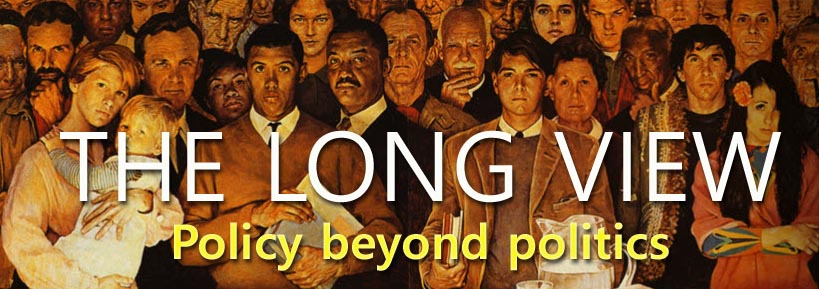Trade wars make strange bedfellows. So is the current standoff between US and China. After three decades of diplomacy and WTO-like agreements, President Trump is trying sanctions and open confrontation to cajole China into respecting international rule of law and intellectual property.
"I’m glad Trump is confronting China on its market access barriers. Those are the real issue — not the bilateral trade imbalance. This is long overdue. But trade is not a zero-sum game. China can thrive and rise, and we can, too, at the same time. That’s what’s been happening for the past 40 years. But we’d be even better off if China offered the kind of easy access to its market for U.S. manufacturers that it enjoys in America. It’s time to recalibrate U.S.-China economic ties before it really is too late.
What do I mean? China’s formula for success had three pillars.
The first was a lot of hard work; delayed gratification; high savings; smart investments in infrastructure, education and research; and a Darwinian system of capitalism. In China’s “jungle capitalism,” 30 companies in the same business emerge and compete to see which becomes the alpha male and wins the government’s backing to go global. This system has produced high levels of innovation — Alibaba, Tencent, DJI — despite a censored internet, lack of a free press and an authoritarian government.
The second pillar was a system of cheating on World Trade Organization rules; the forced transfers of technology; the stealing of the intellectual property of others; nonreciprocal trade rules; and massive government support for the winners of both its Darwinian competitions and inefficient state-owned industries.
The third pillar — never acknowledged by China — was a stable global trading system built by U.S. statesmen and sustained by the U.S. Navy. It’s been the U.S. Navy in the Pacific that has assured China’s trading partners there that China’s economic domination wouldn’t result in China’s geopolitical domination over them — and therefore made them open to massive trade and investment from China."Bannon used the financial CNBC network to celebrate Trump's war trade stance:
This "coming together" in a tough stance reached even the Democratic trade committee chair, the rabid anti-Trump Chris Van Hollen, asking for even tougher stances on chinese companies such as ZTE
Economic forces seem to be realigning against China in a long-term game-changing bet. Market signs seem to indicate that there is no shortage of players wanting to gamble for this option. The stakes are high, the dimensions and global character of China's economic position in the world make the ripple effects on the interconnected international economy hard to predict:
In any case, the new strategic scenario seems headed to break the self-imposed boundaries of conventional wisdom, particularly the myth of an invincible authoritarian, state-controlled China model advantage over free market, entrepreneurial economies of the West.
For Trump's base, the realities of his trade war look different:
Free trade doesn't necessarily mean "free range" , one-sided trade deals, particularly when the other side has been voicing for years a "Made in China 2025" plan with targets of 90 percent "made in China" products.
It begs to wonder what kind of free trader is the government that accepts deals with an ultra-nationalist partner with an ultra-mercantilist policy such as China.
In any case, Trump is not provoking a trade war, but reacting to one that started decades ago and has been escalating at broad daylight.
It takes two to tango. This might be a rocky dance.
For Trump's base, the realities of his trade war look different:
Free trade doesn't necessarily mean "free range" , one-sided trade deals, particularly when the other side has been voicing for years a "Made in China 2025" plan with targets of 90 percent "made in China" products.
It begs to wonder what kind of free trader is the government that accepts deals with an ultra-nationalist partner with an ultra-mercantilist policy such as China.
In any case, Trump is not provoking a trade war, but reacting to one that started decades ago and has been escalating at broad daylight.
It takes two to tango. This might be a rocky dance.





